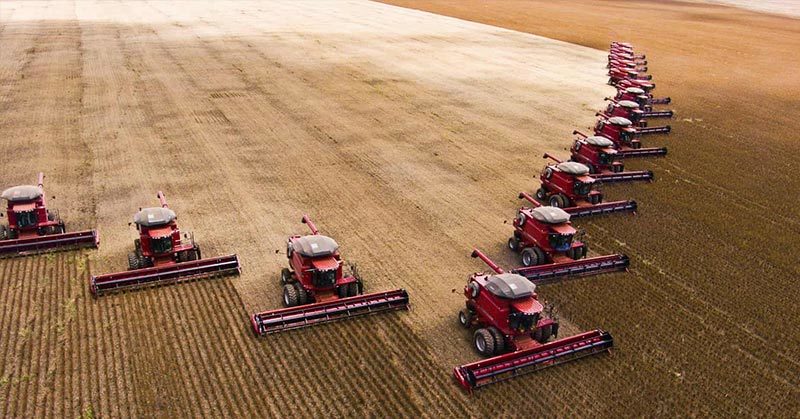Over the last several years, we have witnessed a number of disastrous environmental events, and from what it looks like, it has a lot to do with humans destroying nature.
The devastating fires in Australia, California, and Brazil have wiped out millions of acres of forest. Extreme weather like hurricanes, earthquakes, and tornadoes have destroyed people’s homes and taken countless lives.
These events, along with many others, are stark examples of how the earth’s climate is changing, and how it is affecting us. Humans, however, are not the only ones who are suffering. Wildlife is taking the brunt of climate change, and their populations are declining because of it.
Humans are destroying nature, and we are the only ones who can restore it.
The Anthropocene Era
Sir David Attenborough has said that humanity has entered a new geological age in which humans dominate the earth. This age is called the Anthropocene era.
Unfortunately, this has not been good for us or the planet. Human overconsumption, population growth, and intensive agriculture has caused animal populations to plunge over the last fifty years, and it doesn’t look like that trend is reversing.
The World Wildlife Fund (WWF) and the Zoological Society of London (ZSL) recently released their biennial Living Planet Report 2020. The results showed that on average, the global populations of mammals, birds, fish, amphibians, and reptiles, has fallen by 68 percent since 1970 [1].
The research was compiled by 134 experts from around the world. They tracked global data on 20 811 populations of 4 392 vertebrate species. This included more well-known, endangered animals like polar bears, as well as less popular amphibians and fish.
The most alarming decrease occurred in Latin America and the Carribean, which saw an average fall of 94 percent in vertebrate populations. Overexploitation of ecosystems, fragmentation of habitats, and disease in these areas has most negatively affected reptiles, fish, and amphibians.
Africa and Asia Pacifc have seen a 65 percent and 45 percent drop respectively, and Europe and Central Asia have recorded a 24 percent decrease. In North American, wildlife populations have dropped by 33 percent. This is humans destroying nature.
Read: Want to double world food production? Return the land to small farmers
How Does This Affect Humans?
Humans are destroying nature, but what are they doing to themselves? This is an immense problem for humanity because we depend on those ecosystems for survival. Robert Watson, the chair of the Intergovernmental Science-Policy Platform on Biodiversity and Ecosystem Services (Ibpes), says that the health of these ecosystems is deteriorating rapidly.
“We are eroding the very foundations of economies, livelihoods, food security, health, and quality of life worldwide,” he explained [2].
The human footprint has become so large that it has left little room for anything else. Three quarters of all land has been either turned into farmland, covered with concrete, flooded by dam reservoirs, or significantly altered in some other way.
Two thirds of marine area has also been altered by fish farms, shipping routes, subsea mines, or other projects.
We are now running out of space, and nature is losing its ability to provide what we need. Humans now extract sixty billion tonnes of resources every year, nearly double that of 1980. The amount of waste we produce is now more than what the earth can absorb, and runoff from farms and factories is rendering significant portions of land useless.
“We have been displacing our impact around the planet from frontier to frontier. But we are running out of frontiers,” says Eduardo Brondizio, an Ibpes co-chair from Indiana University Bloomington. “If we see business as usual going forward then we’ll see a very fast decline in the ability of nature to provide what we need and to buffer climate change.” [2]
Read: Dozens of Previously Unknown Viruses Discovered in 15,000-year-old Glaciers
Humans Destroying Nature
“It seems that we’ve spent 10 to 20 years talking about these declines and not really managed to do anything about it,” said lead ZSL researcher Robin Freemen. “It frustrates me and upsets me. We sit at our desks and compile these statistics but they have real-life implications. It’s really hard to communicate how dramatic some of these declines are.” [3]
Mike Barrett, executive director of conservation at the WWF says that all of the indicators of biodiversity loss are going in the wrong direction- rapidly. Urgent and immediate action is necessary in the food and agriculture sector.
“As a start, there has got to be regulation to get deforestation out of our supply chain straight away. That’s absolutely vital,” he said [3].
The report showed that only 25 percent of the Earth’s terrestrial area has no human imprint. These areas are found primarily in Russia, Canada, Brazil, and Australia. Tanya Steele, chief executive at WWF, says that we’re wiping wildlife off of the planet. We’re burning our forests, polluting and overfishing our seas, and destroying wild areas.
“We are wrecking our world – the one place we call home – risking our health, security and survival here on Earth.” [3]
There is Hope
Despite how desperate this all sounds, there is still something we can do about it. Conservation efforts have been proven to be effective, and we have managed to restore a number of animal species populations.
To truly save our planet, Attenborough says it will require system shifts in how we produce our food, create energy, manage our oceans, and use materials. More importantly, he says it will require all countries to work together.
“The time for pure national interests has passed, internationalism has to be our approach and in doing so bring about a greater equality between what nations take from the world and what they give back. The wealthier nations have taken a lot and the time has now come to give.” [3]
Keep Reading: Opinion: If Life Feels Bleak, It’s Because Our Civilization is Beginning to Collapse
- https://www.wwf.org.uk/sites/default/files/2020-09/LPR20_Full_report.pdf
- https://www.theguardian.com/environment/2019/may/06/human-society-under-urgent-threat-loss-earth-natural-life-un-report
- https://www.theguardian.com/environment/2020/sep/10/humans-exploiting-and-destroying-nature-on-unprecedented-scale-report-aoe

